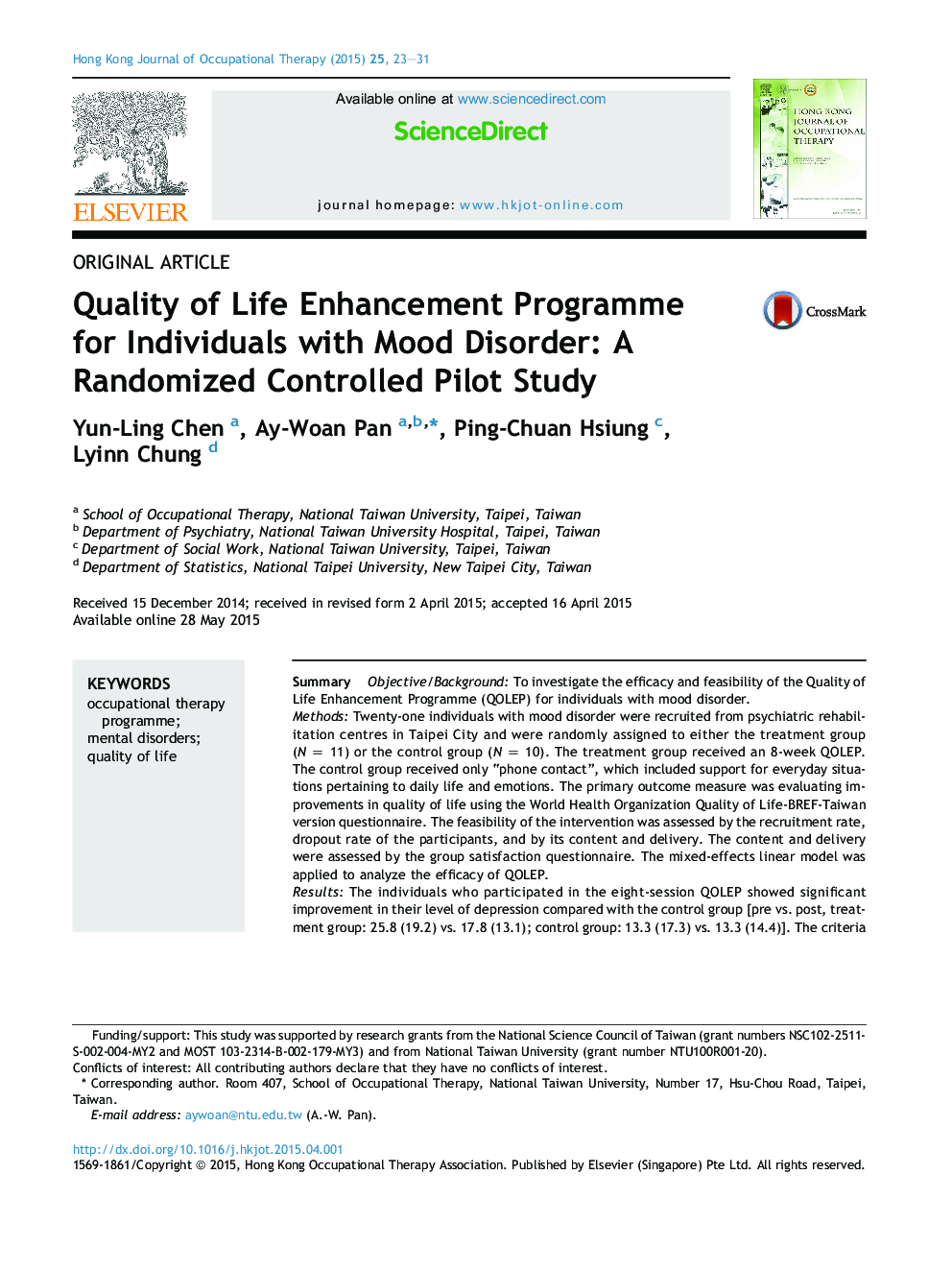| Article ID | Journal | Published Year | Pages | File Type |
|---|---|---|---|---|
| 2694718 | Hong Kong Journal of Occupational Therapy | 2015 | 9 Pages |
SummaryObjective/BackgroundTo investigate the efficacy and feasibility of the Quality of Life Enhancement Programme (QOLEP) for individuals with mood disorder.MethodsTwenty-one individuals with mood disorder were recruited from psychiatric rehabilitation centres in Taipei City and were randomly assigned to either the treatment group (N = 11) or the control group (N = 10). The treatment group received an 8-week QOLEP. The control group received only “phone contact”, which included support for everyday situations pertaining to daily life and emotions. The primary outcome measure was evaluating improvements in quality of life using the World Health Organization Quality of Life-BREF-Taiwan version questionnaire. The feasibility of the intervention was assessed by the recruitment rate, dropout rate of the participants, and by its content and delivery. The content and delivery were assessed by the group satisfaction questionnaire. The mixed-effects linear model was applied to analyze the efficacy of QOLEP.ResultsThe individuals who participated in the eight-session QOLEP showed significant improvement in their level of depression compared with the control group [pre vs. post, treatment group: 25.8 (19.2) vs. 17.8 (13.1); control group: 13.3 (17.3) vs. 13.3 (14.4)]. The criteria of feasibility were met in this study. Most of the participants were satisfied with engaging in the QOLEP activities within a supportive environment.ConclusionThe participants who received the 8-week QOLEP demonstrated significant improvement in the level of depression. Studies with a sample size of at least 104 participants are recommended in the future.
